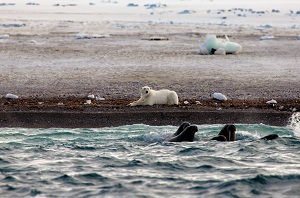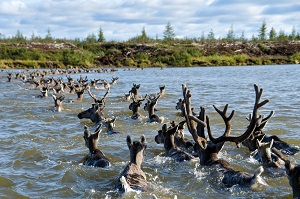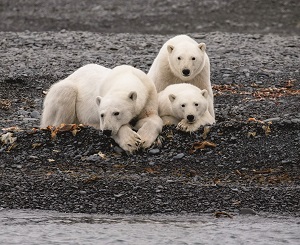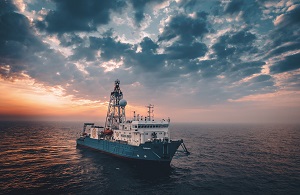Please activate JavaScript in your browser to use all interface options.
Rosneft continues large-scale scientific research in the Arctic
28 February 2025
Russia celebrates Arctic Day on 28 February to draw attention to the issue of preserving the nature of this unique region.
Rosneft is committed to environment-oriented campaigns and biodiversity preservation activities in the Arctic region. Since 2012, the Company has been implementing the largest comprehensive scientific research programme in the Arctic since Soviet times. During this time, the Company has already conducted more than 50 expeditions and collected a unique array of information about the region. Geological, oceanological, hydrometeorological and environmental studies are carried out in cooperation with the nation's leading research organisations.
The Company's expeditions are unprecedented in their scale: it conducts research of the northern seas, seabed, coastal zone, glaciers and icebergs, as well as bioindicator species. The results of many years of work studying the region are presented in the environmental atlases of Rosneft and Innopraktika, a non-governmental development institute, and are also reflected in numerous documentaries made with the Company's support.
 Rosneft, together with scientists from the country's leading scientific institutes, launched in 2024 a new corporate biodiversity conservation programme called Tamura. It aims to update information on the status of the region's key animal species, including the bioindicators.
Rosneft, together with scientists from the country's leading scientific institutes, launched in 2024 a new corporate biodiversity conservation programme called Tamura. It aims to update information on the status of the region's key animal species, including the bioindicators.
During the first field season alone, Rosneft organised 5 expeditions in the north of the Krasnoyarsk region, during which it conducted research on the Kara subpopulation of polar bears, wild reindeer and rare bird species. The total length of the air routes was almost 17,000 kilometres and the water routes more than 3,000 kilometres.
At the mouth of the Yenisei River on the Brekhovsky Islands, scientists from IPEE RAS found 60 rare bird species. As part of the programme, Rosneft, together with SFU, continued multi-year studies of the wild reindeer population. In addition, on the north-western coast of Taymyr and the islands of the Kara Sea, the Company's scientists conducted a polar bear census during the ice-free period. A total of 50 Arctic carnivores were recorded. In 2025, scientists will conduct the first comprehensive aerial survey of the Kara polar bear subpopulation in Russia.
 The results will allow scientists to draw conclusions about the state of the ecosystems and develop measures to conserve biodiversity in the Arctic region. There will be ten expeditions in total over four years.
The results will allow scientists to draw conclusions about the state of the ecosystems and develop measures to conserve biodiversity in the Arctic region. There will be ten expeditions in total over four years.
Besides, Rosneft, together with Innopraktika and the Centre for Whole Genome Sequencing, is implementing a unique project to create a genomic database of living organisms in the Russian Arctic. This information is essential for long-term planning for the sustainable development of the region and the conservation of its fragile ecosystems. Priority work includes assembling the complete polar bear genome.
Since 2013, Rosneft has been patronizing all polar bears in Russian zoos. To date, the Company has provided support to 35 polar bears in 16 zoos across the country, including housing, feeding, veterinary care, and cage renovation. The Company has also developed special toys to enhance the physical activity of the animals. Rosneft is also implementing a programme to rescue and rehabilitate young polar bears left in the wild without maternal care. Since 2016, the Company has already helped to save six orphaned cubs in the Russian Arctic sector.
 Rosneft and Innopraktika are also implementing a major environmental project in the White Sea. As part of the expeditions, the scientists repeated the route taken by the famous Soviet hydrobiologist Konstantin Deryugin more than 100 years ago. The experts plan to collect data on the current state of the White Sea biota and assess changes in the region's ecosystems over the past 100 years.
Rosneft and Innopraktika are also implementing a major environmental project in the White Sea. As part of the expeditions, the scientists repeated the route taken by the famous Soviet hydrobiologist Konstantin Deryugin more than 100 years ago. The experts plan to collect data on the current state of the White Sea biota and assess changes in the region's ecosystems over the past 100 years.
Rosneft continues geological exploration of the Arctic. The project, which has been running since 2020, already covers all the seas of the Russian Arctic. The purpose of the expedition is core sampling for subsurface imaging of the studied regions, as well as to estimate the extent of the Russian continental offshore in the Arctic Ocean.
Department of Information and Advertising
Rosneft
February 28, 2025

-315xx70.png)

